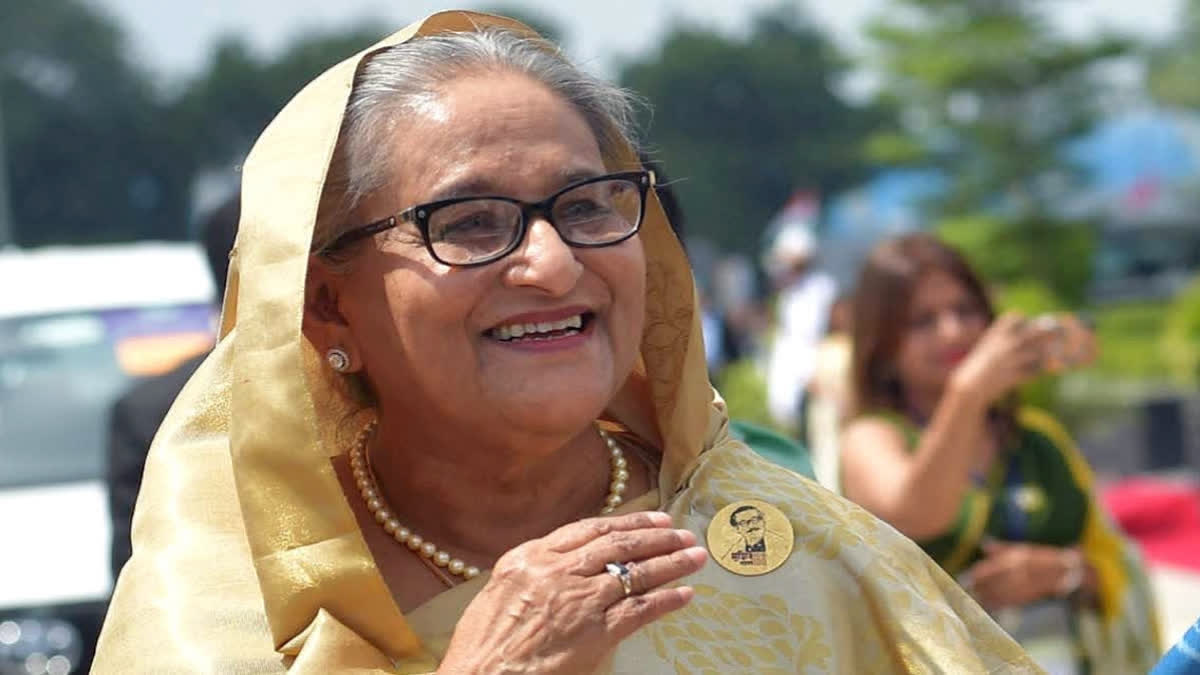United Nations/Geneva: Amid efforts by Bangladesh's interim government to bring ousted prime minister Sheikh Hasina back from India, top UN officials said the issue of extradition is a bilateral process and hoped that states will cooperate and support each other towards ensuring accountability.
“The bottom line is that all those responsible for what happened and what amount to very serious human rights violations and possibly international crimes are held accountable,” Rory Mungoven, Chief of the Asia-Pacific Region of The Office of the United Nations High Commissioner for Human Rights (OHCHR), said at a press briefing in Geneva on Wednesday.
Hasina, the Amami League leader, resigned and escaped to India on August 5 after anti-discrimination protests against the quota system turned into a movement and ousted her 16-year regime from power.
Bangladesh's International Crimes Tribunal (ICT) has issued arrest warrants for Hasina and several former Cabinet ministers, advisers, and military and civil officials for “crimes against humanity and genocide”.
Responding to questions on Hasina and her extradition from India, Mungoven said: “The issue of extradition is really a bilateral process that we hope that states will cooperate and support each other towards this goal of accountability, whether that's India or other states where people may take refuge.” He said there are other ways that states can cooperate and support Bangladesh as well, for instance, investigating corruption and tracing assets or ill-gotten, stolen funds.
“The important thing is cooperation first,” he said, adding that any extradition or trial process should respect due process and international standards.
On the issue of the death penalty, he said: “Yes for the UN it is a constraint for us to cooperate in proceedings that can result in the death penalty. But not just for the United Nations. I think many member states have this concern, and it would be a factor that they would also have to weigh about their support to the process or the question of extradition."
"So I think this really needs to be seen in this broad principle, really that accountability must move forward, and states have to find ways to work together to achieve that.” Responding to questions about bringing back Bangladeshi leaders to face the judicial process in the country, Volker Turk, UN High Commissioner for Human Rights, underlined the need for accountability when serious, grave violations of international human rights law, abuses of this kind are committed.
“it is crucial that indeed, accountability is served.” “We need to ensure that there are fair trial standards, due process guarantees and this reform is ongoing and is one that we need to support us as much as we can from the international community side as well,” Turk said.
“There is also the issue of making sure that when people, for example, who have committed serious crimes are outside the country, universal jurisdiction can work in those countries where universal jurisdiction for grave violations of international human rights law is possible, then that can also be part of the accountability process.”
He further stressed the judicial process inside the country is reformed, guarantees due process, and fair trials, and that the process goes ahead because “we cannot allow for perpetrators of serious human rights violations to get away with impunity". "They need to be held to account and that's part indeed of the work that is being undertaken,” Turk said.
The relations between India and Bangladesh came under strain after the interim government headed by Muhammad Yunus came to power on August 8.
India has been expressing concerns over attacks on minorities, especially Hindus, in Bangladesh. In recent weeks, Hasina has also accused the Yunus-led interim government of perpetrating "genocide" and failing to protect minorities, especially Hindus, since her ouster.
On the other hand, the interim government has been demanding Hasina's extradition from India -- a demand that New Delhi has not responded to yet. Under the provisions of the India-Bangladesh extradition treaty, extradition may be refused if the offence is one of a "political character".



